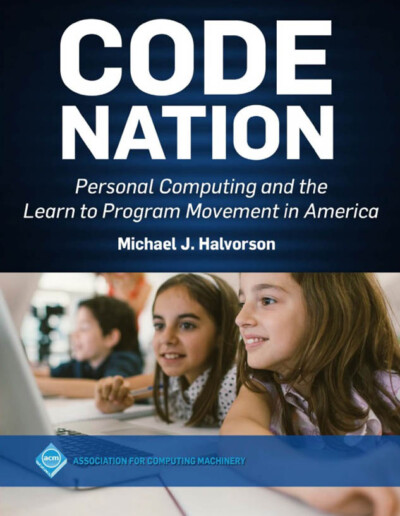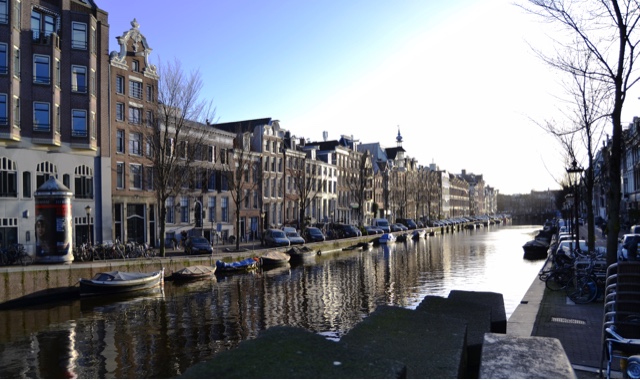Page 23 • (12,731 results in 0.023 seconds)
-

Can learning to code be described as a social movement in American history? PLU Professor Michael Halvorson thinks so. His reflections on the subject were recorded as part of PLU’s Homecoming and Family Week, which presented several lectures by the PLU faculty for the Lute…
Halvorson Delivers Homecoming Lecture on Programming and Social Movements View a recording of the October 6 webinar created for the PLU community Posted by: halvormj / September 30, 2020 September 30, 2020 Can learning to code be described as a social movement in American history? PLU Professor Michael Halvorson thinks so. His reflections on the subject were recorded as part of PLU’s Homecoming and Family Week, which presented several lectures by the PLU faculty for the Lute community. The
-

By Sarah Cornell-Maier. Understanding the function of the human brain is a truly enlightening experience, especially when you tie brain research into the newest developments in computer technology, creativity, and innovation studies. Recently, I got the opportunity to sit down at Pacific Lutheran University with…
Innovation and the Mind Posted by: halvormj / January 11, 2018 Image: Problem solving in Psychology is closely related to other disciplines. Photo by Morgan Harper Nichols on Unsplash. January 11, 2018 By Sarah Cornell-Maier. Understanding the function of the human brain is a truly enlightening experience, especially when you tie brain research into the newest developments in computer technology, creativity, and innovation studies. Recently, I got the opportunity to sit down at Pacific Lutheran
-
Pastor Jen is available to the entire PLU community for one-on-one pastoral care. Contact Pastor Jen at rudejl@plu.edu or book an appointment online.
Campus Ministry is Here for YouCampus Ministry exists to be a “Space for Grace” on the campus of PLU. Outside of The University Congregation, University Chapel and our Small Groups, we can help connect students to faith-based clubs, studies, lectures, literature, local congregations and pastoral care and counseling. Pastoral CarePastor Jen is available to the entire PLU community for one-on-one pastoral care. Contact Pastor Jen at rudejl@plu.edu or book an appointment online. Every minister has
-

Visiting Lecturer of Southern Lushootseed | Native American and Indigenous Studies | nancy.bob@plu.edu
Nancy Jo Bob Visiting Lecturer of Southern Lushootseed Email: nancy.bob@plu.edu
Contact Information -

Churches, Organs, and Art in The Netherlands and Germany University Organist and Associate Professor of Music Paul Tegels takes students to visit historical buildings in the Netherlands and northern Germany. Organ students will see and play some of the most significant historical instruments in that region,…
was written. Art students will look at the historical building themselves, as well as at the amazing artworks (paintings, frescos, altar pieces, etc.) that can be found in these buildings.Follow their adventures on the blog! Music Capitals of the WorldAssociate Professor of Music Ed Powell is taking students to explore the history of music. Germany, Austria and the Czech Republic are rich with musical tradition. This small area of Europe was the central location for many of the finest musicians of
-
In keeping with PLU’s access, recruitment, and retention goals, we must expand our understanding of “effectiveness” in assessment to include equity-centered assessment practices.
also means that we must be willing to oversample minoritized populations to ensure they are fully represented in our assessment activities. This may mean welcoming smaller sample sizes than we might otherwise prefer because they can reveal diverse experiences of learning in the university. Resources for Promoting Equitable Assessment as Central to Inclusive PedagogyInclusive Pedagogy This website from the University of Chicago Center for Teaching introduces Inclusive Pedagogy and offers a wide
-
semester hours, selected from the following: Latino Studies courses are taught in English. No more than one course taught in English may count towards the minor. HISP 321: Iberian Cultural Studies (4) HISP 322: Latin American Cultural Studies (4) HISP 325: Introduction to Hispanic Literary Studies (4) LTST 341: Latino/a/x Experiences in the U.S. (4) LTST 342: U.S. Latino/a/x Literary and Cultural Studies (4) HISP 401: Introduction to Hispanic Linguistics (4) HISP 403: Advanced Spanish (Study Away) (4
-
Established in 2011, the PLU Peace Scholars Program is designed to deepen understanding of central issues and theories of dialogue, peace-building, conflict, and war.
Become a Peace Scholar Challenge, Inspiration, Opportunity Find Out How Peace Scholars in Oslo Students Meet with Leading Norwegian Peace Practitioners. Program Interest Meetings November 18 and 20, 2019 Peace Scholars and American Embassy PLU Alum Exploring Future Careers Excursions Explore Norwegian Nature and Culture Excursion Choices Range from Hiking and Whitewater Rafting to Cultural Landmarks in Telemark Nobel Peace Prize Forum Peace Scholars got to interact with Nobel laureates and
-
This conference focuses on “Black Bodies and the Justice of God” in the Lutheran tradition, in art, theology, ethics and literature.
``Black Bodies and the Justice of God``Thursday, Sept. 27, 2018 The Eighth Annual Lutheran Studies ConferenceThis year’s Lutheran Studies Conference will take place from 1 p.m. to 5 p.m., concluding with a keynote lecture in the evening at 7 p.m. in the Chris Knutzen Hall, Anderson University Center. This conference focuses on “Black Bodies and the Justice of God” in the Lutheran tradition, in art, theology, ethics and literature. The conference also draws connection to the book Between the
Dr. Marit Trelstad, University Chair in Lutheran Studies -
Blog Post: Caps and gowns and tassels … Oh, my! Dear Class of ’15: We heard you. My thanks to those students who have reached out to share concerns about graduation caps being distributed at the Tacoma Dome, separate from gowns and hoods. Rest assured that you…
adhere to the Academic Costume Code, which was first codified in 1895 and has been maintained by the American Council on Education (ACE) since 1932. The academic regalia is complete in itself and is not intended to be a canvas for messages, humor or items unrelated to the dress that symbolizes the academic profession. The Academic Costume Code allows for certain exceptions, such as religious clothing or military uniforms. For instance, it is perfectly appropriate for someone to wear a headscarf
Do you have any feedback for us? If so, feel free to use our Feedback Form.


